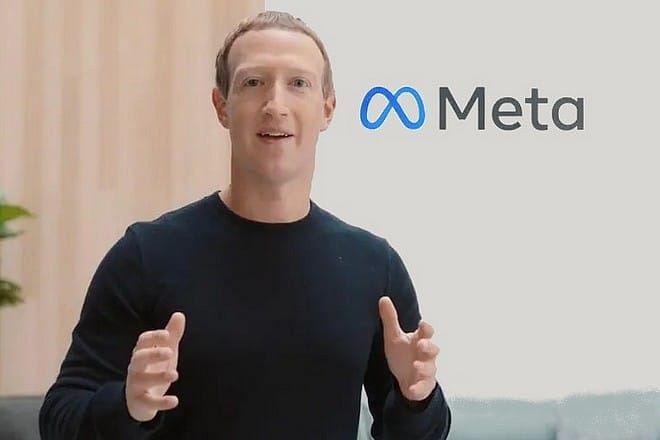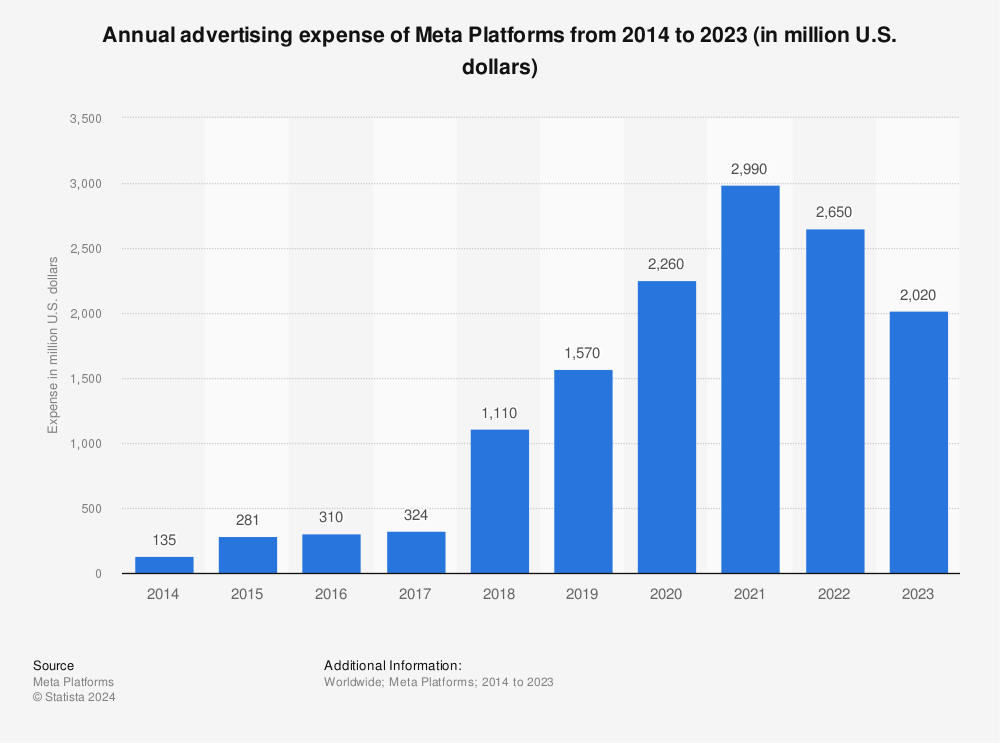I think Facebook’s rebrand to Meta worked

Here’s a selfie of me wearing sunglasses inside. What do you notice?

Three gold stars to you if you realised there’s… no camera? That’s because the camera I used is in the sunglasses, and that’s why I’m wearing sunglasses inside.
They’re Ray Ban Meta Wayfarers – smart glasses from the company formerly known as Facebook, and iconic glasses company, Ray Ban. I picked them up this weekend, and so far they’ve exceeded my expectations.
Of course, I knew the build quality and fit would be great – Ray Ban have been making great sunglasses for almost a hundred years. But I didn’t expect to be so taken with the smart features. I thought they’d be a fun gimmick – and maybe they will turn out to be in the end – but for roughly the same price as Ray Bans usually are, and a 30 day trial period, I thought I’d give them a go.
The Ray Ban Meta glasses were announced in September of last year. The previous version, released back when Meta was Facebook, were the first and called Ray Ban Stories. I remember reading about their launch in 2020 and knowing that never in a million years would I put a Facebook-made device with cameras and microphones on my face. Yet here I am, four years later, a (proud?) owner of glasses made by the same company.
And I think I’ve ended up here, weirdly, because of how well-executed the Facebook rebrand to Meta was. I think it was one of the most successful rebrands we’ve ever seen.
I’ll write more about the glasses in the coming weeks. Today, though, let’s talk about how a scandal-ridden social network company I disliked morphed from into a platform company that I feel happy to buy sunglasses from.
The year is 2021. Facebook Inc has had a bad year. Society is tired after four years of Brexit, Donald Trump and, more recently, Covid. Many people blame the first two on Facebook itself. I should say here that there’s no concrete evidence to suggest that Facebook was responsible for either, but there is at the time a pervasive, almost intuitive sense in the air that the platform itself is to blame.
Then there were the Facebook Papers, a damning trove of leaked papers from inside the company, showing everything from Facebook being unprepared for vaccine misinformation in comments to how they knew that Instagram had a ‘toxic’ effect on teenage girls. Sentiment for Facebook amongst everyday people, and I imagine amongst employees, was rock bottom.
The company’s reputation was plummeting. I remember at the time feeling an almost visceral dislike for the company – I was still angry about Brexit and Boris Johnson and the state of the world, and even though there was no real, concrete evidence that they had directly caused it, I did feel as though the company was to blame.
So when, on 28th October, Facebook announced that it was rebranding to Meta, it was met with a huge amount of scepticism: that this was a move to launder their reputation and put the reputational damage behind them.
From Denise Lee Yohn, writing for Harvard Business Review at the time:
Last week Facebook CEO Mark Zuckerberg announced his company is changing its name to Meta. The rebrand has been panned for many reasons: it’s a foolish attempt to distract from the criticism the company has recently faced; the metaverse that the new name refers to is not well-known or understood, so it’s confusing; Meta is a stupid company name, etc. But the most critical issue with this rebranding is that the new brand has been introduced without any substantive change at the company.
And here’s the thing. I’ve pored over interviews, blog posts, videos – and more recently, Threads posts – from Zuckerberg and Meta’s corporate accounts, and I don’t think this is what then-Facebook, now-Meta was actually doing. Yes – they clearly wanted to reorient their company, but it wasn’t for the sole purpose of reputation laundry. And this quote from a Zuckerberg interview in 2021 summed it up well, for me:
To what extent are we running towards something versus running away from it? And I guess all I can say is that, to me personally, it was really important that we are running towards something.
This sums up what I’ve seen from Meta in the last three years: they have leaned hard on the Meta brand, relegated Facebook to an app like WhatsApp or Instagram (and arguably elevated these two to Facebook’s level of importance).
And, although Lee Yohn has a point in her HBR article, I think the change was to unlock the changes Zuckerberg wanted to make, rather than to signal an already-changed company. And I think, largely, he has succeeded.
Facebook becomes an app, Meta is the company, and all of a sudden, rather than building features for Facebook that propagate across their other apps, it’s a company creating platforms and brands to connect the world.
Meta
So in hindsight, it’s smart.
Relegate Facebook. Make the company about platforms, not just social networks.
And that’s exactly what they did: when Meta became Meta, the company split into two: one half, the social apps like Facebook, WhatsApp, Instagram (and now, Threads).
The other half: future platforms, like Meta Quest and HorizonOS (virtual and augmented reality), Narazé (a future, as-yet unreleased pair of smart glasses), the Ray Ban partnership and, I think most consequentially, actually, Llama and Meta AI.
One excellent consequence for now-Meta is it has permission in the market and with investors to more aggressive pursue new technologies, because the rebrand tells the market that the company, though still about connecting people, is a new technologies – or to use their terminology – future platforms company. Not just a social company.
And investors are happy for them to explore and expand into new technologies too, because the social apps side of the business is one of the biggest money machines to ever have existed. Their social apps alone generate over $40m every quarter, and they continue to grow, even today, some twenty years after their first social app was founded. It’s absolutely staggering.
And one of the biggest pay offs from the future platforms side, I think, will be AI.
AI
The great thing about choosing the words ‘Meta’ and ‘Platforms’ (the full company name is “Meta Platforms Inc”) is that it allows you so much bandwidth.
Watching 2021’s Facebook Connect, where Zuckerberg announced the change, is a bit cringey now. Because he goes hard on the ‘metaverse’ being the thing his company is pivoting to.
Admittedly, he buys himself cover by saying that it could take a decade. And maybe it will. But the company has stopped behaving like it’s coming any time soon and instead it has pivoted energy and resource to another platform that has captivated the world: AI.
This is huge, because Meta is a free-to-use platform builder. They put out free software, reach scale, then find a business model for it. They’ve done it for Facebook, Instagram, Messenger and will do it for WhatsApp and Threads. And free AI is AI that will be used, especially when its closest competitors come at a cost (both ChatGPT and Google’s Gemini are around £20 per month, each).
So Meta’s AI will, I suspect, be the AI most of us use in the future. Hugely valuable for them, and only possible because it’s Meta AI, not Facebook AI. The former, somehow, is acceptable to me. The latter... I don't know. It feels creepy.
The former feels like it has permission to be in my life, the latter absolutely doesn’t. And that, then, is the power of a brand and building brand associations.
Brand and budget
So Zuckerberg has reoriented the company: it’s not just about social media anymore. Great. But it’s hard to get anyone to believe it.
So they started spending a lot of money on advertising, not to persuade people to sign up to their services – they have networks effects for that – but to change perceptions.
From Statista:

Meta, like Amazon before it, and Google before them, reached a critical scale where reputation and perception truly matters to growth. So they build brands that look and feel great in advertising.
As we’ve seen, perceptions impacts everything – and in Meta’s case, its reputation as a social network company, the Facebook company, was holding it make from being allowed to make investments in future platforms. It was holding itself back from hiring the best talent who want to work on exciting problems. Consumers saw Facebook as having only one job: a place for your nan to post about her noisy neighbours.
So not only did they rebrand and reorganise the company, but they spent a lot of money telling everyone about it.
Meta has become a company that obsesses over customer perception and the relationship they have with its brand.
Rebrands almost never work
But I think Meta's worked because it was trying to be something else entirely, trying to run towards something rather than away from it. Show that the company isn't just social networks anymore.
Facebook is an important part of their business still, but now so is AI and VR and chat apps and sunglasses. “Facebook” bogs these new platforms down because they can’t transcend or elevate from it. It’s… just Facebook. Where “Meta”, which means “beyond” in Ancient Greek, was a blank slate in consumers' minds on which to build the next generation of products.
It literally does just that. A simple word lets Mark Zuckerberg create limitless new platforms in a way that he otherwise couldn’t have done.
And it’s given the products his teams are creating the best chance of life; not bogged down by the Facebook name with its old associations, but carrying a new parent brand that evokes positive optimism about the future.
This, I think, is why I ended up buying some Ray Ban Meta sunglasses. Because Meta is now a company that innovates in both software and hardware (platforms), and though logically I know it’s still the same company, emotionally it feels different: detached from the baggage of just a few years ago.
PS…
I’ve given Meta a fairly easy ride here. The company has drawn an astronomical amount of criticism about its impact on the world. From promoting violence against Rohingya in Myanmar to Russian Interference in the US, to lynchings in India tied to WhatsApp, the company had, and still has, a lot to face up to.
And I grappled with whether to make this more central to the story here. But I wanted today’s newsletter to be a brand management case study, rather than a takedown piece about a company that we all know has been embroiled in a lot of wrong in the world. It felt like you already knew that bit.
I don’t think talking about how they’ve executed a great new brand with a new, exciting future precludes us from criticising the company’s past. And saying they’ve done a good job with their brand doesn’t mean I think the company is perfect, nor do I think they've solved all their problems. There's a long way to go there, still, I think.





